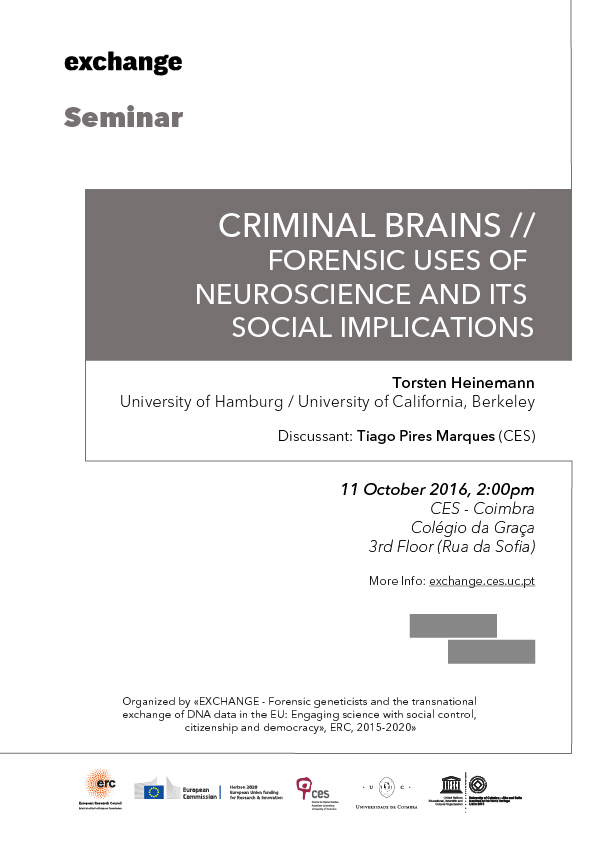Seminar
Criminal brains: Forensic uses of neuroscience and its social implications
Torsten Heinemann (University of Hamburg /University of California, Berkeley)
October 11, 2016, 14h00
CES-Coimbra > Colégio da Graça (Rua da Sofia)
Discussant: Tiago Pires Marques (CES)
Abstract
In recent years, neuroscientists have made fundamental progress in the study of human behaviour and mental processes. This progress has not been limited to basic research, and neuroscientific knowledge is increasingly applied in everyday life. For example, there are several attempts to use neuroscience in forensic contexts e.g. for lie detection or in order to predict and prevent criminal behaviour. This research is expected to help identify individuals at risk of committing violent crimes even before they actually do so. It therefore promises to revolutionise crime prevention, prosecution and intervention programmes in the near future.
At the same time, forensic uses of neuroscience raise serious social concerns ranging from the operationalization of criminal behaviour or "the truth" to the (envisioned) application of the results.
This talk provides an overview on forensic neuroscience with a focus on the neurobiology of criminal behaviour. I argue, that neuroscientific research reaffirms and reproduce categories of social inequality such as race, class, and gender that is aims to overcome. Theoretically, the paper contributes to the ongoing debate on biological citizenship by outlining so far neglected aspects of potential exclusion and stigmatization on the basis of biological traits. The argument is based on a systematic literature analysis as well as extensive fieldwork and interviews I conducted in world leading institutes for neuroscience.
Bio
Torsten Heinemann is professor of sociology at the Institute of Sociology at the University of Hamburg and Marie Curie Fellow at the Institute for the Study of Societal Issues at the University of California, Berkeley. His research interests are in social studies of science and technology with a special focus on the neurosciences and genetics, social problems and social control, social theory, medical sociology, and public understanding of Science.
Seminar organized by “EXCHANGE - Forensic geneticists and the transnational exchange of DNA data in the EU: Engaging science with social control, citizenship and democracy”, European Research Council, 2015-2020.


